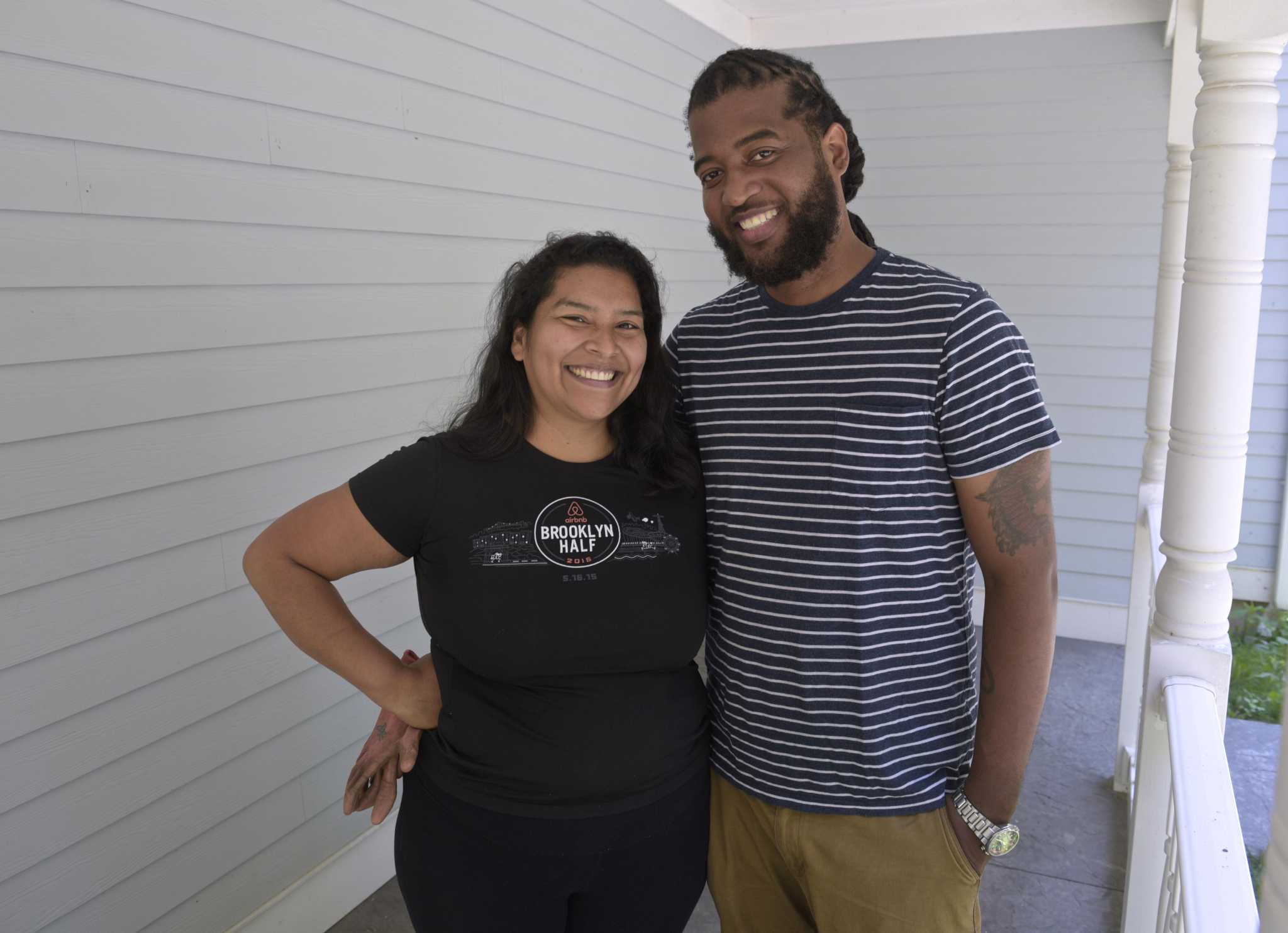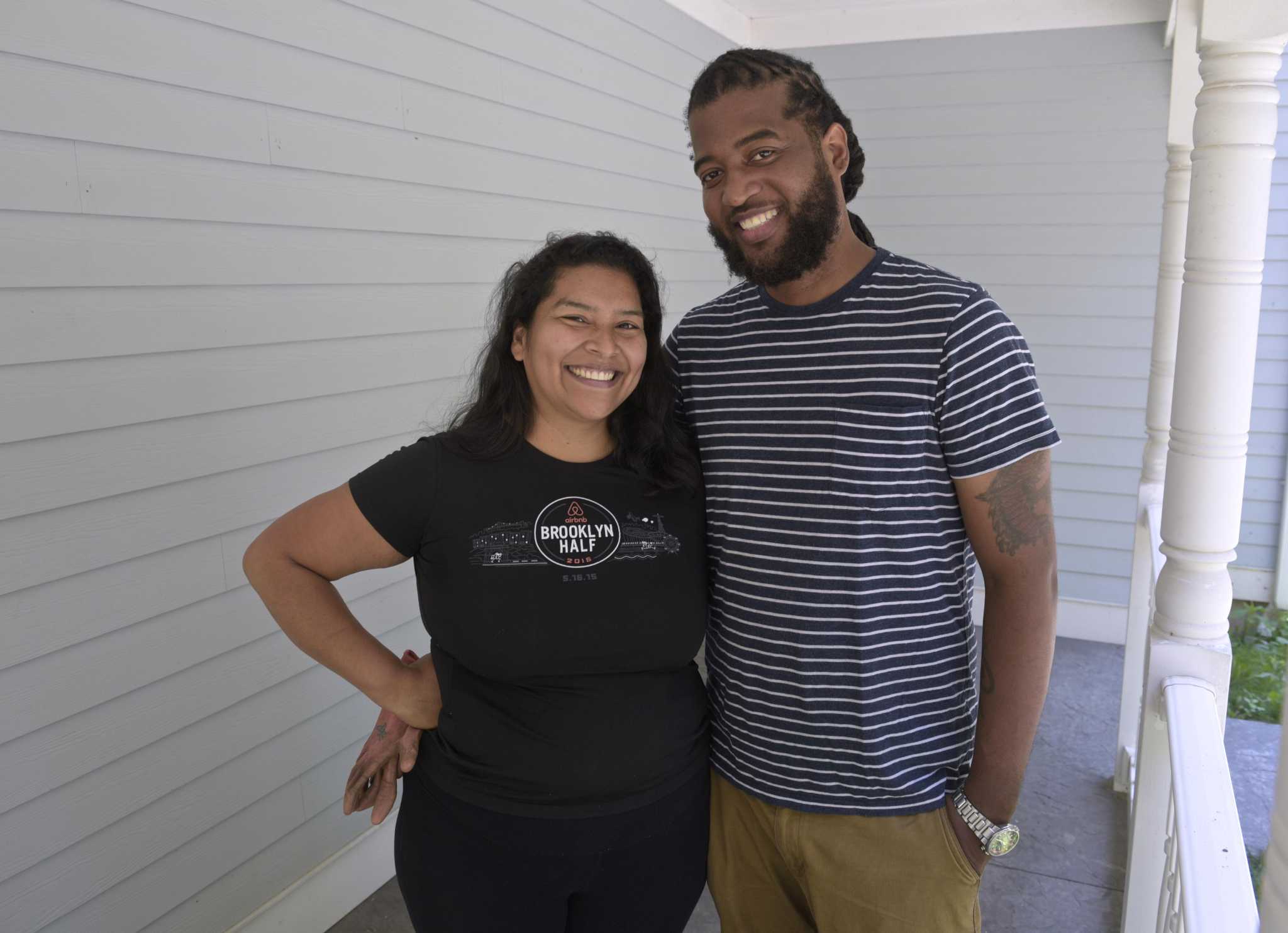

DANBURY – The short version of how two labor union activists from Harlem and Queens wound up growing hemp in the semi-rural hills of western Danbury is that they were fed up with New York City.
But the longer story is a certain amount of destiny played a role in the couple’s year-old farming venture, as well as their decision to speak up for people of color as city leaders debate the future of legal marijuana in Danbury.
“I just want to grow my weed,” says Hector Gerardo with a laugh that belies how seriously he believes in giving people convicted of marijuana crimes a special advantage in securing cannabis business licenses. “You can’t talk about equity if you’re not giving the chance to people in Danbury who have gone to jail for cultivating and selling the cannabis plant.”
Equity was the top issue in Hartford late last week when Gov. Ned Lamont’s social equity council approved a list of neighborhoods in Danbury and across the state that were disproportionately impacted by the war on drugs. Those neighborhoods will receive preferential treatment in Connecticut’s budding recreational marijuana industry.
How last week’s action affects newcomers such as Gerardo and his partner Elizabeth Guerra remains to be seen, but the couple agrees that now is the time is now to speak out, as Danbury begins its own discussions about what types of cannabis establishments it will allow in the city.
“We would like to see priority given to equity applicants – folks who have gone through the system, were negatively impacted by the system, and were able through some grace of the universe to find money to pull together to put forth an application,” said Guerra.
Although Guerra and Gerardo met because of mutual connections in New York City’s labor organizing circles, it turns out that farming runs in both of their families. Gerardo visited his great-grandfather’s farm every summer as a boy in the Dominican Republic. And Guerra’s farming knowledge was handed down from her grandfather, who owned a farm in Ecuador.
It wasn’t until Guerra landed a job with the American Federation of Teachers Connecticut that the couple’s farming destiny blossomed. Gerardo was still in the city, unconvinced that a move to Fairfield County was right for a Harlem-raised kid who’d become active in labor organizing and nonprofit work with at-risk youths.
After a year of Guerra and her daughter living in Bethel, Gerardo decided to join them and become a Connecticut resident.
In 2020, the couple launched Seamarron HomeStead Farms on a 3-acre, densely vegetated property east of Wooster Mountain State Park.
In addition to a crop of hemp – a legal plant with such a low dose of THC that does not alter a person’s mood – the couple has a 5-bed vegetable garden, a stand of apple trees, and a small aviary behind a bear-proof electric fence, buzzing with bees.
“This is our first year,” said Gerardo, who still helps run a Bronx nonprofit that battles food insecurity and the school-to-prison pipeline. “It may look ugly right now, but it’s going to look beautiful when it’s done.”
The goal, Gerardo said, is not so much to apply for an equity producer’s license for his farm, but to advocate for the right of other people of color in Danbury to do so.
“We might want to just stay with the hemp,” said Gerardo, who has cut rough terraces into a slope on his property for more farming surface. “The question is, are they going to give the priority to the people who look like me, or the multinational guy with the money?”
At the moment, Danbury is not giving priority to anyone wanting to start a cannabis business. The city passed a one-year ban on new marijuana applications in July to give planners time to digest Connecticut’s 300-page marijuana decriminalization law – parts of which went into effect on July 1.
The moratorium won’t stop personal adult marijuana use or prevent a new medical marijuana dispensary from opening on Monday in a former bank on Mill Plain Road.
Mayor Joe Cavo has also convened a cannabis brain trust to advise him and the next mayor about the city’s options and requirements. That brain trust of city leaders and department heads had its first meeting last week.
For Guerra, who is raising two daughters in Danbury and keeping her day job as a chief negotiator for the AFTCT, the couple plans to make noise until equity becomes a priority.
“The elephant in the room that no one wants to talk about is race,” Guerra said. “This is an awesome opportunity for small business owners – but right now the people making money in the state for medicinal cannabis aren’t small business owners – they’re multinationals.”
rryser@newstimes.com 203-731-3342

